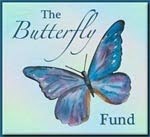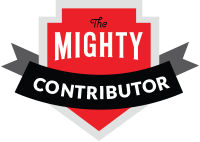August always seems to be
transitional. Yearning for the last sounds of the locust before the
leaves fully fall to the ground and as you for wait for the summer
season to be put to sleep. Coming off the heals of a
very painful and emotional August - very much a season in my own life, I
took solace in a Netflix movie; Tully, a story about a struggling
mother.
It only took minutes for me to
wrap my arms and heart around the main character Marlo. You meet her
with two children and expecting a third. From the beginning it isn't
about this glorious life wrapped up in a perfect
motherly bow. You know the kind of illusion we all paint to make
people think that life is blissful and unblemished with hardships. It
is obvious from the opening scene that her child Jonah has special
needs, as she strokes him gently with a sensory brushing
technique. It was an instant connection for me. I already understood
where we were going from the very beginning - a journey much like my
own, perhaps just on a slightly different level.
I absorbed myself into her
feelings, almost as if I could have written it or lived it. I think in a
variation of it, I am still living pieces of Tully's story and perhaps I
always will be. The mistake is the belief
that this is a story about postpartum depression, it's simply not.
While Marlo did admittedly experience that with her second born Jonah, her third birth isn't really the cause of her struggle.
The premise of Tully is well
crafted. Marlo has a wealthy brother and perfectionist Sister-In-Law
that offers to hire and pay for a night nanny to assist her through the
night with a new baby as a baby shower gift of
sorts. It's blatantly apparent that Marlo feels like she can't quite
measure up or relate to her Brother's wife's ideals or lifestyle and is
hesitant of feeling like she needs to accept that kind of night time
help. She's resistant to the idea, as most supermoms
would be. The idea that we can't be all things to everyone or do all
things somehow seems like admitted defeat. The movie script however
leads us to believe that Marlo does indeed accept this generous offer
and hires the night nanny, who's name is Tully.
Tully, this beautiful
lifesaving friend that quickly becomes Marlo's hero diving into rescue
her emotionally, physically, spiritually and soulfully. Tully steps in
to fill all the missing gaps; making perfect cupcakes
because Marlo lacks the energy to be that perfect mom who makes goodies
for school events, cleaning her home when she's too exhausted in the
middle of the night; taking care of things that Marlo lacks the energy
and time to do. Tully rescues her from sleepless
nights with a new baby, she nurtures the broken soul, feeds her
understanding and compassion without judgment and truly understands that
"You can't fix the parts without treating the whole." And that is
exactly what Tully strives to do. Treats all the broken parts as a
whole. Tully is carefree and free-spirited, young in her 26 years
somehow she feels like a reminder of what Marlo has
forgotten.
Marlo struggles with
coming to grips with the challenges of her life. A child with a severe
sensory processing order is no joke. Her son Jonah keeps getting
defined as "quirkie" without any real diagnosis, but
it's clear that he has unique needs that are not being met or addressed
by his school, and that Marlo is completely unsupported as a parent by
those in her community as the school principle informs her that she
needs to find a PARA aid for her disruptive child
in order to keep him enrolled in school - one of which she is fully
financially responsible for funding and providing to accompany her son
at a school all day. This leads to an eventual explosion of Marlo's
feelings when the principal dismisses her child
from school, with Marlo shouting at the top of her lungs that the world
views her child as "retarded."
In that moment I just
cried so hard. Because I can't tell you how often I have felt that
way. That people look at Noah as nothing more than a word. A sad
parent who drew the short stick in life with a child
that is "damaged" and "disrupted." We carry these labels. We all do.
And my label? The struggling mom. I am that mom. Whether you want to
look away and pretend that I'm not. I am. Sure I can present this
picture perfect have the world by the tail and
everything is under control and managed persona just like Marlo. I can
do tap dances with the best of the best. But underneath it all, I am
aching for a Tully. That hero that will step in and fill the voids. And
provide all the answers for all the really
shitty parts that life has to offer.
While many claim that
this is a movie about mental illness I don't see it that way. While it
is presented in a way that may imply Marlo has lost touch with reality
she hasn't. She recognizes who Tully is, she
knows that. Tully's character was merely a cinematic presentation of
her "before." Not someone that she truly believes existed in present
time. But we're led to believe that is the case because the movie needs
us to in order to fully understand the meaning
and appreciate what Tully truly represents. What if your younger self
could be the one to rescue you?
Marlo lacks a support
system, she's truly doing it solo. And while she has a great husband
he's oblivious to the extend of her needs and challenges. He's absorbed
in work and in his spare time indulgences in
video games. Leaving Marlo to feel undesired, overworked, and like
maintaining the household and the kids are on her shoulders. Her
husband Drew, however isn't to be hated or disliked. He genuinely does
care about Marlo and his family, he just never fully
seen or understood the level of Marlo's struggle or her needs primarily
because Marlo did a good job of trying to camouflage what was going on
and project that she had everything covered and needed no help. Marlo
wasn't the type of woman to raise the white
flag and surrender. So she invented Tully. A further fabrication in
order to convince her husband she was getting the night support she
needed to continue to be a superhero to her husband, children and
community during the day.
Marlo is in this state of
questioning of how she got to this moment in her life. And from
Tully's perspective she's like cool, I have this life and maybe it's
hard but it's incredibly beautiful. She is enamored
with what the future holds, while Marlo feels a sense of being forlorn
and lost. How the two merge into a life's understanding which is really
an expression of profound understanding. Never once is Tully's position
one of disappointment for how her life is
destined to turn out. She's kinda like cool... hey it's messy and
complicated but I'm okay that it turns out that way. Can you imagine if
our younger self gave us such forgiveness and grace and complete
non-judgment for how the ending of our lives turns
out? And never placed blame that things turned out like they did.
I remember reading
comments on some of these mommy boards on social media when this movie
first came out. Most moms oddly very critical of the movie. They
wanted a happy ending and felt it wasn't. One commented:
"Movies
are to entertain, enlighten and inspire. While we may not have ultimate
healing in a particular season in our life, we need to know that it is
achievable. We
don’t go to movies to see complete road blocks."
Maybe that's true, maybe primarily people go to movies so they can get caught up in glamorous dramas or movies where it's
all rainbows and unicorns at the end or a fantasy that will never exist.
But what if we lost ourselves in
something more real. What if we allowed ourselves to empathize and
relate to a character in such a profound way. I think Tully was so
impactful for me because I feel it's very rare that someone
can identify with my life. And Tully felt like we mutually could
identify with each other. Trying to come to terms with the "before" me
and "after" me of any particular period or time in your life.
I know there are lots of
Marlo's out there, I see them in special needs groups all the time. I
recognize their cries for help. I understand their pain. I feel it. I
live it. I know it. And the world too often
turns a blind eye to all of us. They look away if they detect anything
that to them would require them to participate in someone else's life
in any real meaningful way. Which makes self-care even more critically
important. Sometimes when no one is there
you have to be your own hero even if it just means that you rescued
yourself in a hot shower for 20 minutes so you had the strength to keep
going on the rest of the day.
The movie ends like it
begins. With Marlo working on her son's sensory challenges and working
on a brushing technique with him. Her own journey and her incredible
love for her children who now are a big part
of her "after." It's not that Marlo's "after" is eternally sad, we
should not look down upon but rather admire her journey for she's found
ways to move forward.
Love,

Noah's Miracle by Stacy Warden is licensed under a Creative Commons Attribution-Noncommercial-No Derivative Works 3.0 United States License.
























.jpg)

